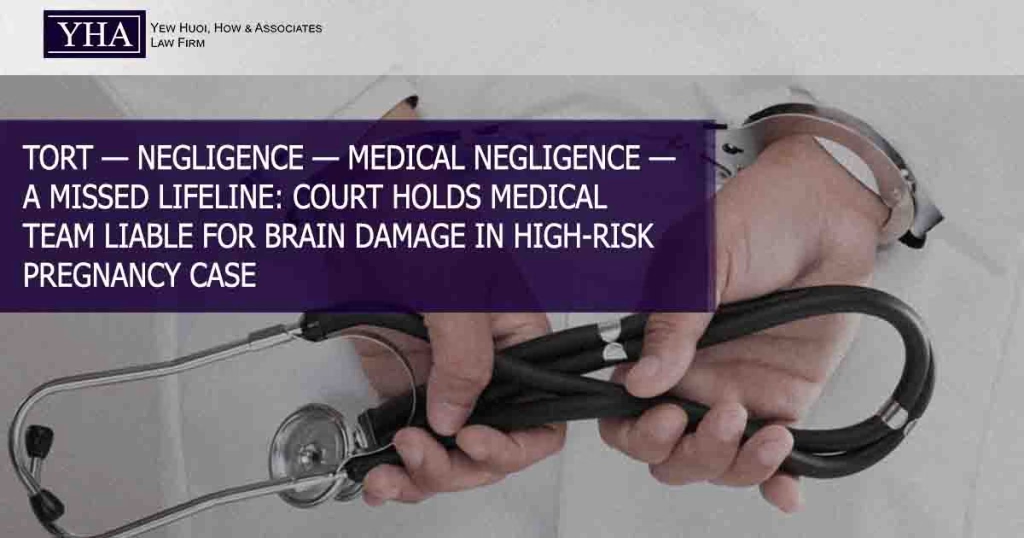Summary and Facts
The plaintiff was admitted to a hospital owned by the 17th defendant at 33 weeks of gestation, diagnosed with Placenta Praevia Type III, classifying her as a high-risk obstetric patient. After undergoing an emergency caesarean section, the plaintiff collapsed, was resuscitated, and then transferred to the Intensive Care Unit (ICU). Following further care, the plaintiff suffered severe and irreversible brain damage, leading to permanent physical and mental disabilities.
Legal Issues
- Did the defendants commit negligence?
- Did the defendants breach their duty of care?
- Did the breach of duty by the defendants cause the injuries and damages to the plaintiff?
- Is the plaintiff entitled to special damages, pre-trial damages, damages for pain and suffering, loss of amenities of life, future general damages, and costs?
Court Findings
- The standard of care expected of the defendants was aligned with the Federal Court decision in Zulhasnimar bt Hasan Basri & Anor v Dr Kuppu Velumani P & Ors.
- Proper documentation of diagnosis, treatment, and medical plans in a patient’s records was essential, a fact admitted by one of the doctors during cross-examination.
- Discrepancies were found between the estimated blood loss and the amount of blood transfused.
- The court noted incomplete medical records for the period between 1 pm and the time the plaintiff was transferred to the ICU.
- Witness testimony revealed that the danger stemmed from an underestimation of blood loss, leading to insufficient and delayed blood transfusions.
- The court found that the defendants, including doctors and nurses, failed to respond to warning signs, resulting in oxygen deprivation and subsequent brain damage. The multidisciplinary team was collectively held liable for failing to monitor the plaintiff’s condition in the ICU properly.
Reference Cases
- Bolam v Friern Hospital Management Committee [1957] 2 All ER 118
- Rogers v Whitaker (1992) 175 CLR 479 (HC)
- Bolitho v City and Hackney Health Authority [1997] 3 WLR 1151
- Foo Fio Na v Dr Soo Fook Mun & Anor [2007] 1 MLJ 593
- Zulhasnimar bt Hasan Basri & Anor v Dr Kuppu Velumani P & Ors [2017] 5 MLJ 438; [2017] 5 MLRA 399; [2017] 8 CLJ 605
- Yusnita bt Johari (suing through her husband and litigation representative Khairil Faiz bin Rahamat) v Dr Jerilee Mariam Khong & Ors [2023] 9 MLJ 629

